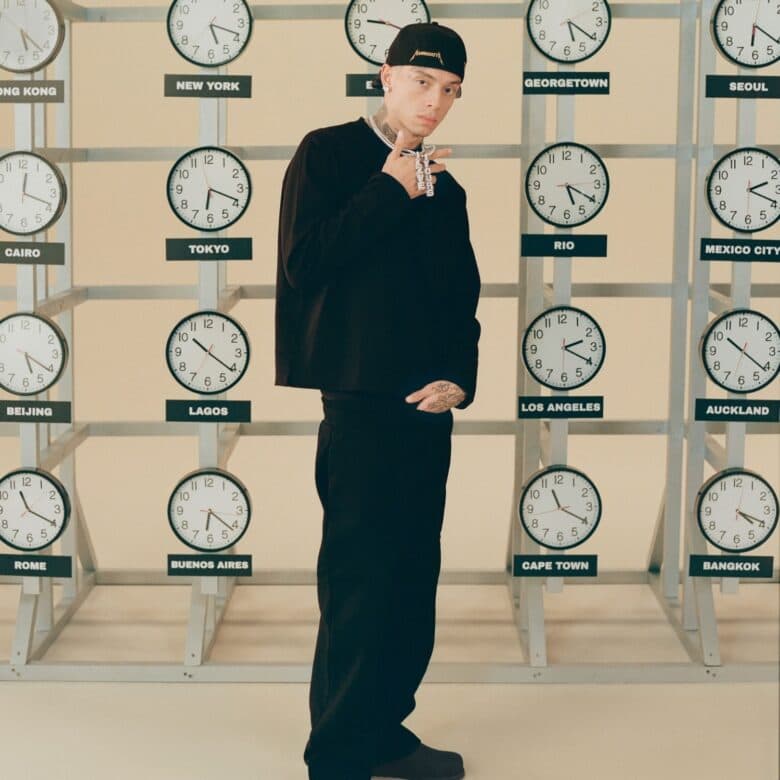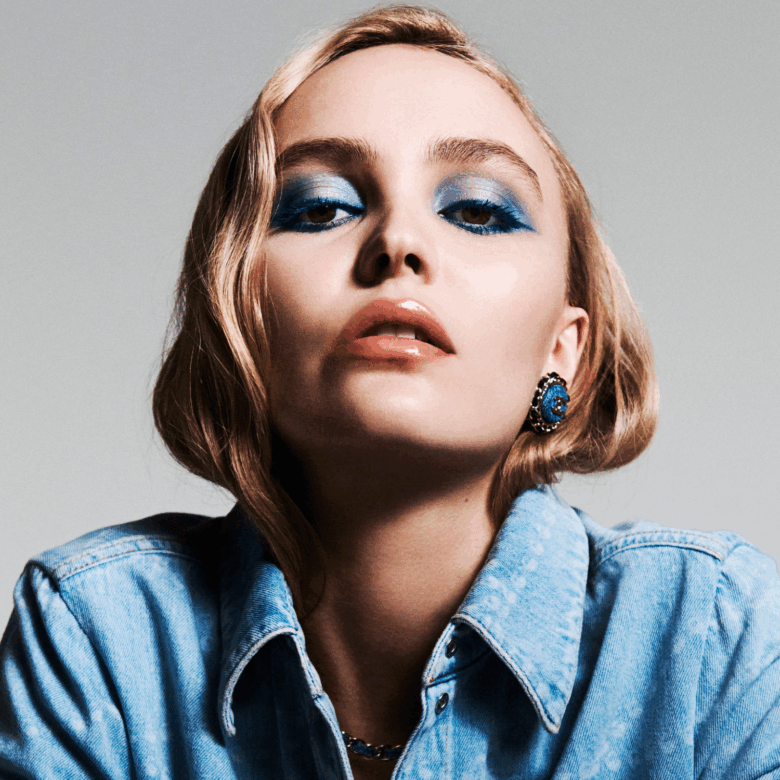- Writer Nessa Humayun
“I hate having my picture taken more than anything,” she exclaims, dialling in from Marrakesh. “But this HUNGER shoot was the easiest I’ve done. It ended up being a nice picture. I felt very fake when I saw it, though. I was like, Jesus.”
Horgan should be used to the limelight. After stints of waitressing and working at a job centre while trying to break through, she hit gold in her thirties when she co-wrote and starred in the Bafta-nominated BBC3 show Pulling, about three single women living together in a London flatshare. Its impressive follow- up, Catastrophe, drew from another stage of Horgan’s life – coupledom, pregnancy and motherhood – and bagged her and her co-writer (and co-star) Rob Delaney a best comedy writer Bafta. Now she’s back in the writers’ room, hard at work on the second series of Apple TV+’s Bad Sisters.
The first season is a murder mystery, centred on the Garvey sisters – Eva (played by Horgan), Becka, Bibi, Ursula, Grace, and the latter’s abusive husband, known as “the Prick” — who dies under suspicious circumstances. Taking on sensitive subjects like coercive control and infertility within a comedy is no easy feat, but it’s a tightrope the 52-year-old has walked throughout her career, resulting in some of the most expertly drawn and hilarious women to hit UK television. It is, for Horgan, a case of art imitating life. “When we’re at the worst possible times of our lives, there will always be some light to sit among the darkness,” she reflects. “That’s how life works, it’s a cruel joke.”
Here, the Irish talent speaks to HUNGER about the trials and tribulations of creating comedy that has a conscience.

Nessa Humayun: How are you feeling about the upcoming series of Bad Sisters?
Sharon Horgan: Creating a second series is especially hard when people like the first. It’s almost impossible not to think about how it will be received. Sometimes it’s just slightly too many voices – the director, execs, producer, script supervisor, the audience and then the ghastly voice in your head as well. Apart from all that, I’m loving it because it’s such an unusual world to put yourself in. These five sisters are in a heightened but very real world, and they have found themselves in the most extraordinary situation. We’ve all wanted to kill someone we hate at some point in our lives and also not get caught for it [Laughs]. It feels very different from what I would have previously written about, which has been socially realistic scenarios about relationships or motherhood.
NH: The first series was based on the Flemish show Clan, which only ran for one season. What was it like heading off-piste with a second series?
SH: It was strange because when I finished watching the original series, I assumed there was going to be another one. The further we got into it, the more I kept thinking about what would happen after. I don’t think it could ever be that simple. Women who kill their partners because of domestic abuse don’t just wipe themselves down and skip off into the sunset. It’s a much more brutal, complicated and emotional affair. They can often continue to love those partners even when they’re in prison [for their murder]. I thought about how this family could be affected by something like that.
NH: Researching the long-lasting and wide-ranging effects of domestic abuse must have been tough. How was it trying to depict it truthfully while ensuring that the show remained a comedy?
SH: The big thing was wanting not to fuck it up. It was a constant worry because we’re also trying to entertain people, so you feel like there’s a real responsibility to not get the tone wrong or seem like you’re making light of domestic abuse for titillation. I know from research that this abuse can take the form of coercive control and how isolated victims can become even within the confines of a close family. The series had to be absolutely truthful and accurate while in the setting of a comedy. It’s a silly comedy – the sisters are chasing the Prick around Ireland, sometimes with no pants on, but at the same time, there are really dark moments that you have to capture in the most truthful way possible.
NH: That’s just life, isn’t it? You can find light in the most incredibly dark and traumatic moments.
SH: Yes! When Rob and I were writing Catastrophe, we used to get a bit nervous because we veered into really delicate subjects. You’d have to think about what your personal reaction would be in that moment and hope that you weren’t abnormal. I think that when we’re at the worst possible times of our lives, there will always be some light to sit among the darkness. That’s how life works, it’s a cruel joke. But there are always times when I’ll get a note back saying, “I don’t think this feels like a place where you should make a joke,” and you have to reply, “Well, I do!” And if it doesn’t work, you take it out in the edit.
NH: You’ve had a long and prolific career and throughout it you’ve unpacked the female experience at various stages. Has this been a conscious decision?
SH: I’m surrounded by women – my daughters, my friends, the people I work with. They’re the people who make me laugh the most. It’s not a conscious decision to always create work about women. I love writing male characters, for example, but it feels comfortable. My perspective is female and I don’t think it has to be limiting. I remember Rob saying, “If you make comedy and it’s not funny to everyone, then it’s not funny.” When we were making Bad Sisters, we thought it would be for a female audience, but it’s really not, it’s for everyone.
NH: When you started out in the British television industry in the early Noughties, there weren’t so many three-dimensional women on our screens. You really helped lead the charge with that. Was it something that was frustrating to you at the time?
SH: Completely. I remember talking to Caroline Quentin from [the British sitcom] Men Behaving Badly about it. She was one of the most gifted comedy actresses of that era and all she was doing was setting up jokes for the male actors. You’d get the girlfriend role, and it may have been really nicely written, but it was all done by men. And no matter how good they were, they couldn’t write from our perspective. It was a bland landscape for female writers back then. So when we started writing [Pulling], we knew that it was going to be about three single female friends, but I suppose we didn’t realise it would have the impact that it did.

NH: I know it wasn’t intentional, but Bad Sisters aired post Donald Trump’s presidency and around the time that Roe vs Wade was overturned in the US. Do you think timing influenced its reception at all?
SH: Definitely. I remember doing press in America and every female journalist who came in was saying how they were sick to their back teeth of right-wing, religious men in positions of power making all of the decisions. Our villain had an analogous presence, so I think it was cathartic for the women watching. There’s still a lot of anger now, and by the virtue of timing and a little bit by accident, I’m trying to produce a villain that everyone is able to put their anger into for the second series. I’m relishing the idea of creating a bigger villain who can sneak up on people.
NH: Coincidentally, not too long before that, abortion was finally legalised in Ireland. That must have been a great feeling.
SH: It’s the most amazing thing, especially with same-sex marriage as well. Two massive referendums came along and the people spoke and just had this phenomenally positive and progressive impact on a country that I was already very proud of. It’s one of the reasons I wanted to set Bad Sisters there, because I wanted everyone to see this great country. It was a shameful thing for many years but what a fucking turnaround.
NH: Have you always been aware of how your art can speak to the culture and vice versa?
SH: I hope I am. You do feel like you have a certain responsibility. Doing it through the medium of entertainment is really important because nothing tells a story as well as a drama or comedy. You’re right in people’s living rooms when they’re relaxing and waiting to be entertained, and then you wake them up a bit. Because the world is such a shit storm and I’m older now, I’ve become more particular about what I spend my time doing. I find it tricky to make entertainment for entertainment’s sake. Don’t get me wrong, I’ve tried to make art before and it always just end up as “entertainment”. But there’s always the Trojan horse idea of sneaking in my own politics and point of view.
NH: You recently “broke” into Hollywood, so to speak, when you starred alongside Nicolas Cage and Pedro Pascal in last year’s The Unbearable Weight of Massive Talent. How did it compare to the more intimate productions you usually work on?
SH: They were all my kind of people but inside a much bigger machine. It’s just the same old, really – people hoping they’re making something that is going to be good. Whether I’m in a truck with Nic Cage escaping “baddies” or playing a tiny person in The Borrowers, it’s all still fun and ridiculous.
NH: Pulling came out in the Noughties, about three young, single women, and then in the mid-2010s you made Catastrophe, which was about long-term relationships and motherhood. Did you intend for your characters to grow alongside you?
SH: Your work changes the more you do. When I was making Pulling I was waitressing, so that’s what I was writing about. Then I was working in TV and my parameters changed because I was hanging around the school gate and picking up kids. I write about all the stages in my life. With Bad Sisters I have a five-headed woman to write about – it has everything and I hope it continues to evolve. The things I’m drawn to are always going to have a bit of me at the heart of it, even if it may not seem like it at face value.
NH: As you’ve drifted more and more in the public eye, how has mining your own life for content changed, if at all?
SH: I just do it in a slightly different way. When I made Shining Vale with Courteney Cox last year, we had a teenage character that’s not too far off from my daughter’s age. Through her, we talked about the mother-daughter relationship, but it felt removed enough via the genre of horror-comedy. I’m not on a level of fame like Nicolas Cage, who I’d class as a celebrity – not me!
NH: You’ve been very productive, of course, but do any burning ambitions for the future spring to mind?
SH: I think my big ambition is to keep doing the stuff I love and being proud of it. I’m not really reaching for any sort of crazy goal. As long as I’m allowed to keep doing what I do, I’ll be happy.


